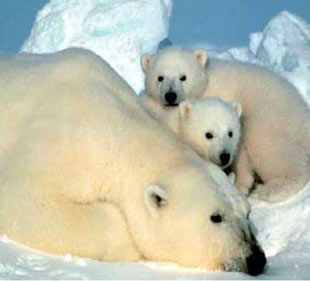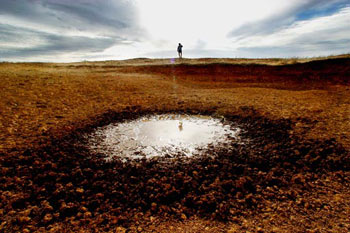You are hereWcP.System.Thinker's blog
WcP.System.Thinker's blog
Beyond Blogs - How Blogs, Wikis, and Social Media Have Changed the Way Businesses Work
Original Source: BusinessWeek
(quote)
...blogs, it turns out, are just one of the do-it-yourself tools to emerge on the Internet. Vast social networks such as Facebook and MySpace offer people new ways to meet and exchange information. Sites like LinkedIn help millions forge important work relationships and alliances. These social connectors are changing the dynamics of companies around the world. Millions of us are now hanging out on the Internet with customers, befriending rivals, clicking through pictures of our boss at a barbecue, or seeing what she read at the beach. It's as if the walls around our companies are vanishing and old org charts are lying on their sides.
This can be disturbing for top management, who are losing control, at least in the traditional sense. Workers can fritter away hours on YouTube. They can use social networks to pillory a colleague or leak secrets. That's the downside, and companies that don't adapt are sure to get lots of it. But there's an upside to the loss of control. Ambitious workers use these tools to land new deals and to assemble global teams for collaborative projects. The potential for both better and worse is huge, and it's growing—and since 2005 the technologies involved extend far beyond blogs. read more »
Polar Bear Declared Endangered Species


(quote)
The U.S. Department of the Interior Wednesday listed the polar bear as a threatened species under the Endangered Species Act (ESA) of 1973 based on evidence that the animal's sea ice habitat is shrinking and is likely to continue to do so over the next several decades. Interior Secretary Dirk Kempthorne, however, made clear several times during a press conference announcing the department's decision that, despite his acknowledgement that the polar bear's sea ice habitat is melting due to global warming, the ESA will not be used as a tool for trying to regulate the greenhouse gas emissions blamed for creating climate change.
The decision was based on evidence that sea ice is vital for polar bear survival, that this sea ice habitat has been reduced, and that this process is likely to continue; if something is not done to change this situation, the polar bear will be extinct within 45 years, Kempthorne said. He pointed to computer models he and his colleagues studied that project a 30 percent decline in sea ice by 2050. read more »
8 Ideas to Fix the Global Food Crisis



(quote)
The world food crisis has two faces. Here in the United States, shoppers stare in disbelief at the rising price of milk, meat, and eggs. But elsewhere on the globe, anguish spills into the streets, as in Somalia last week when tens of thousands of rioters converged on the capital to protest for food.
The strain on U.S. consumers, grappling with the sharpest increase in grocery prices in years, is small compared with the starvation that toppled Haiti's government, ignited riots around the world, and is deepening the tragedy of Myanmar's cyclone survivors. And yet the connection between the developed and developing worlds will be crucial to solving what one United Nations official has called a "silent tsunami" of food prices that has plunged 100 million people deeper into poverty. To stem the misery, relief officials are calling both for emergency aid and for changes in policy worldwide.
...Among the proposed solutions: read more »
- Take a Pause on Biofuels
- Improve Food Aid
- Produce Higher Yields
- Grow Better Crops
- Curb the Speculators
- Break Down Trade Barriers
- Eat Less Meat
Albert Einstein - Emblem of Reason, Icon of Wisdom
(quote)
Bob Dylan came up with one way to remember Albert Einstein: “Now you would not think to look at him/But he was famous long ago/For playing the electric violin/On Desolation Row.”
This is the pure distillate of celebrity. Dylan’s folk-rock vision of “Einstein, disguised as Robin Hood” is one in which the original man has disappeared into a symbolic fog where more or less any meaning may be found. Nowadays, such content-less fame has become common, though there aren’t many out there who match Einstein for resonance. But when he first exploded into public view, there were no precedents. No scientist before or since has so completely transcended the role of expert to become a universal emblem of reason.
...
Photographers caught that wit as well as the gravitas. It helped that he was astonishingly willing to play along. No one made him ride that bicycle or stick out his tongue straight into the barrel of an oncoming lens. Whatever weariness he felt at the crush of the public gaze, he was almost always willing to pause for the shot. There is a story that he was once asked—by perhaps the only person on earth who did not recognize him—what he did for a living. He replied that he was a photographer’s model.
He was just as open to sharing his ideas. Einstein took seriously questions about his science, up to the point of writing one of the best introductions to relativity for the lay reader. (Called Relativity, it’s still in print.) He handled the ridiculous questions, too, with humor and enormous stamina. He told his interrogators what he thought of Prohibition (against, though he didn’t drink), the death penalty (against, at least some of the time), and abortion (for, up to a certain point in the pregnancy). No scientist before Einstein had been so willing to stand before his public.
(unquote)
Images courtesy of NASA



Oxygen-depleted Dead Zones in Oceans Increasing
"Records stretching back to 1960 prove what climate models had predicted: warmer oceans contain less oxygen. Oceanographer Lothar Stramma of the University of Kiel in Germany and his colleagues report in Science that an analysis of historical records and recent samples show that as the globe has warmed, waters with low oxygen content have expanded in the tropical Atlantic and equatorial Pacific oceans.
"The oxygen concentrations in these oxygen-minimum zones have decreased with time," says oceanographer and study coauthor Gregory C. Johnson of the National Oceanic and Atmospheric Administration's Pacific Marine Environmental Laboratory in Seattle, Wash. "The regions of low oxygen have also expanded vertically by both extending deeper into the ocean and closer to the surface."
Fish and other sea life cannot survive in such waters—and this expansion reduces the area where fish can thrive, says oceanographer Janet Sprintall of the Scripps Institution of Oceanography in La Jolla, Calif., who also coauthored the study. She notes that fisheries may be affected as well."
Image courtesy of Scientific American



















